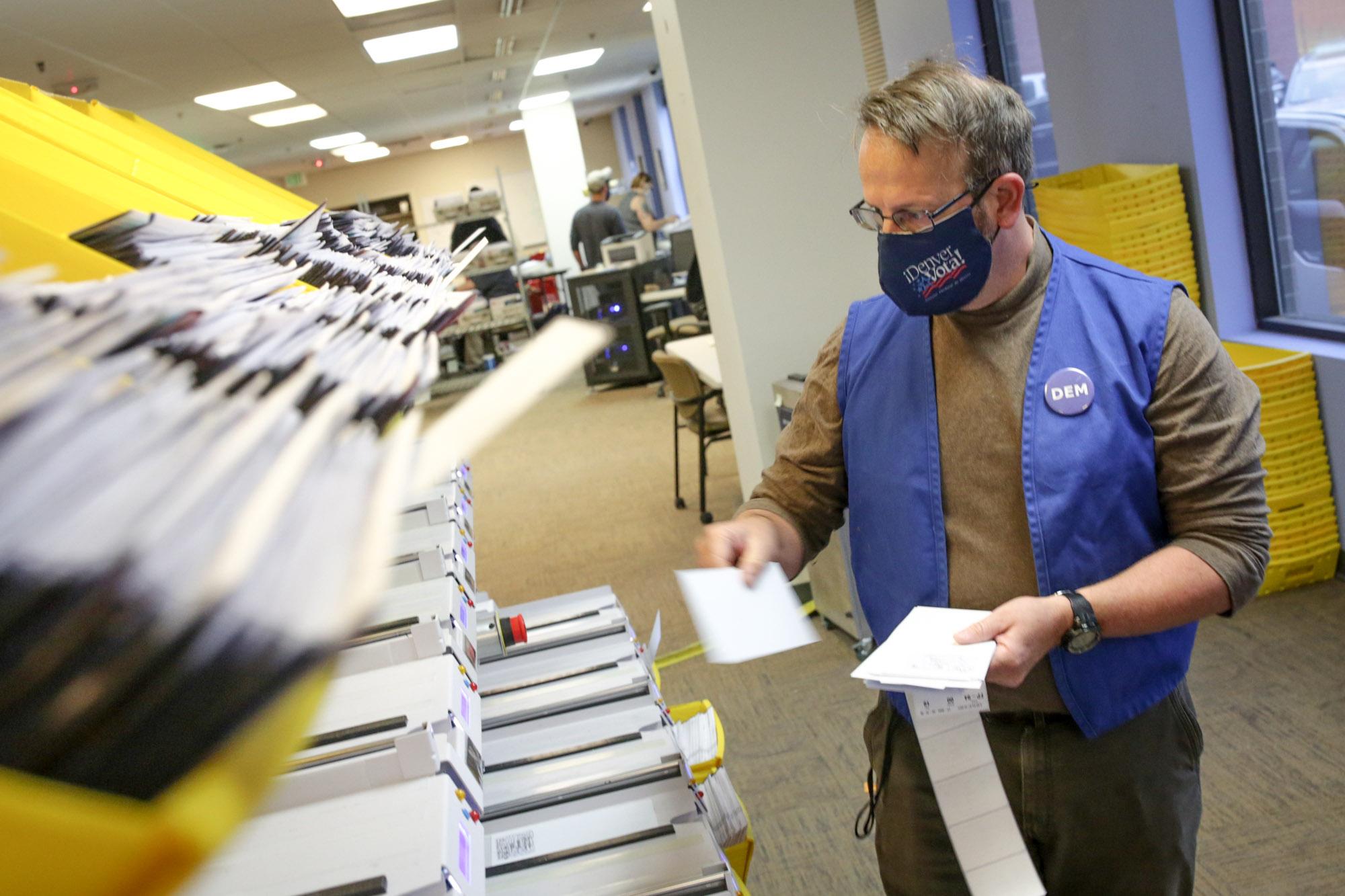
A Denver district judge has allowed a lawsuit to continue against Colorado’s Secretary of State over rejection of voter signatures on mail ballots.
The complaint, filed last December by a veterans rights group called Vet Voice Foundation, argues that Colorado’s vote-by-mail system unfairly disenfranchises voters when it rejects ballots because of a signature mismatch. It also alleges that Black and Hispanic signatures are rejected at significantly higher rates than for white voters.
That signature verification system is in an attempt to prevent fraud that almost never happens, according to the lawsuit. The advocacy group is seeking an injunction to stop the signature matching requirement.
The judge rejected an attempt by the Secretary of State, Jena Griswold, and her attorneys, to dismiss the lawsuit over the plaintiff’s lack of standing.
Griswold’s office said in a statement that the judge’s ruling had nothing to do with the merits of the case.
“This preliminary ruling is on a technical legal procedure question, and does not reflect the court’s judgment of the State’s mail-ballot verification process. The Department of State is confident in our position of protecting Colorado’s voting procedures,” reads the statement.
A CPR News investigation in 2020 found that over about a four-year period more than 100,000 votes were rejected for signature mismatch, yet criminal cases of voter fraud were rare. Some counties and some demographic groups had significantly higher rates of rejection than others.
In court filings, the plaintiff's attorneys, from the national firm Perkins Coie, wrote that the right to vote is fundamental to democracy, but “for the vast majority of Colorado voters who vote by mail, this fundamental right is contingent on an arbitrary, deeply flawed signature matching process. While ostensibly deployed to verify voter identity, signature matching is election integrity theater: it disenfranchises qualified voters by the tens of thousands, all for the appearance—but not the reality—of election integrity.”
The Secretary of State had argued that the case should be dismissed in part because the Vet Voice Foundation lacked standing.
“The Complaint does not identify a single military veteran, family member, or active-duty military member whose ballot was wrongfully rejected on the basis of a signature discrepancy, or even identify how many members or constituents Vet Voice has who are eligible to vote in Colorado elections.”
District Court Judge J. Eric Elliff rejected that argument, saying “the relief Vet Voice seeks, namely, to enjoin Defendant from utilizing signature verification procedures, does not require individual participation. Defendant’s arguments to the contrary, that Vet Voice must be a membership organization and that it must identify specific members who have been disenfranchised, finds no support in Colorado law …”
The Secretary of State argued that voters are given a chance to fix or “cure” their ballots if the signature is flagged, and Colorado provides easy online fixes.
Attorneys for Vet Voice Foundation countered that many voters don’t complete the process. One of the plaintiffs, Leslie Diaz, 31, who voted in Arapahoe County in 2020, had her ballot rejected because of a signature discrepancy.
“Ms. Diaz recalls receiving notice that her ballot was rejected, but by the time she received that notice, the results of the 2020 election had already been announced. For that reason, Ms. Diaz did not cure her ballot, and her vote was not counted. Ms. Diaz does not know why her signature might have been flagged as non-matching,” according to the complaint.
Former Secretary of State Wayne Williams and other Republicans try to intervene
Prominent Republicans, including Wayne Williams, the former Colorado Secretary of State and current candidate for mayor of Colorado Springs, filed a motion to intervene late last week after the lawsuit was allowed to continue.
They argue that Colorado's vote-by-mail system is the “gold standard” and the signature match requirement is integral to preventing fraud and maintaining trust in the system.
“During his time as Secretary of State, Mr. Williams advocated for and eventually won adoption (by unanimous vote in both chambers of the general assembly) a law requiring that Colorado municipalities use signature verification in local elections conducted by mail ballots. Mr. Williams is currently a candidate for Mayor of Colorado Springs and has a strong interest in ensuring the votes cast in the upcoming runoff election (which will be exclusively by mail ballots) are secure and that his voters understand and believe that they are secure,” reads the motion.









